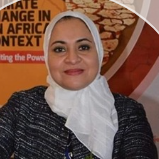
We are pleased to invite you to submit your paper




For Technology Incubation (NBTI) Abuja
with EAI Index:
Find out more about EAI Index
Paper Submission is now open for the 5th edition of INTERSOL! Check out the Call for Papers.Take a look back at the previous edition of INTERSOL here.INTERSOL 2022 supports revolutionary EAI Community Review, find out more here.Every author receives EAI Index credits – regardless of acceptance. Learn more about EAI’s Recognition Program here.Get real feedback on your presentation from other registrants via EAI Compass.
Welcome to the EAI Community
Let the EAI Community help you build your career with collaborative research, objective evaluation, and fair recognition:
- Extra visibility for your paper and fair review → Community Review
- Get credits to receive membership ranks and global recognition → EAI Index
- Real-time evaluation and feedback on your presentation on-site → EAI Compass
Publication
All registered papers will be submitted for publishing by Springer and made available through SpringerLink Digital Library: INTERSOL Conference Proceedings.
INTERSOL proceedings will be submitted for inclusion in leading indexing services, such as Web of Science, EI Engineering Index (Compendex and Inspec databases), DBLP, EU Digital Library, Google Scholar, IO-Port, MathSciNet, Scopus, Zentralblatt MATH.
Authors of selected papers will be invited to submit an extended version to:
- EAI Endorsed Transactions on Energy Web (Open Access) – indexed in Scopus
Additional publication opportunities:
- EAI/Springer Innovations in Communications and Computing Book Series
(titles in this series are indexed in Ei Compendex, Web of Science & Scopus)
Topics
This year’s conference like that of last year will focus on the following thematic areas:
1. Sustainable Development in Underserved Areas
• Global Issues and Challenges
• Engineering Impact on Sustainability Development
• Disaster Resilience to Projects
• Environmental Justice and Role of Civil Society
• Land Use Transitions and Spatial Modelling
• Ecological Infrastructure, Green and Blue Spaces, and Ecosystem Services
• Balancing Development and Conservation Agendas
• Learning / Teaching Methodologies for Sustainable Development
• Evaluation and Assessment of Sustainability Development Tools
• Case Study of Innovative Sustainable Projects
• Scenarios, Complex Systems Thinking, and Multi-Criteria Decision Analysis
• Human Health and Pollution in the Total Environment
• Nature- and Ecosystem-Based Adaptation to Climate Change
• Innovations in Adapting to Water Scarcity and Abundance
• Collaboration Strategies in Engineering / Science Education
• Cloud-based Assisted Learning Environments
• Social Innovation and Interactional Skills for Development
2. Artificial Intelligence (AI) and Machine Learning (ML) for Development
• Role of Artificial Intelligence in Solving Africa’s Development Challenges
• Learning and Reasoning with Small Data Samples, Dirty Data, High Clutter, and Deception
• AI-Enable Context-Aware Decision Making for Rural Areas
• Resource-Constrained AI Processing at the Point-of-Need
• Novel AI/ML Algorithms, Frameworks, and Applications for Development
• AI Modeling & Simulation Platforms for Development
• Future Trends in AI Application to Sustainable Development
• Automation, Tools and Framework in AI and ML for Developments
• Real World Applications of AI and ML
3. Diversity and Gender Equality
• Challenges and Opportunities to Curving Career Attrition of African Women in STEM (Science Technology Engineering and Mathematics)
• Environmental Migration, Gender, and the Food-Water-Energy Nexus
4. ICT for Development
• ICT and Innovative Connectivity as an Enabler for Sustainable Development
• Green Communication Systems and Network
• Use of ICT in Smart Cities
• Sensor Networks and Embedded System
• Collaboration Technologies and Systems
• Embedded Systems and Natural Language Processing
• Environmental Computing, Agricultural Engineering for ICT Applications
• ICT Applications for Electrical and Intelligent Engineering
• Gender Issues, Geo Information, GIS, Green Computing, Multimedia
• Human Computer Interaction
• Robotics, Information Technology for People with Special Needs
• Basic Design Needs and Appropriate Technology for Underserved Areas
5. Peace Engineering and Technology
• Peace Engineering and Technology Infrastructure
• Peace Innovation and Responsible Design,
• Peace Innovation: Ways to Imagine Engineering and Technology to Build Scalable Peace
• Alliance for Peace Building
• Human Rights and AI: Opportunities and Challenge
• Using Peace Engineering for Development: Challenges and Opportunities
6. Cooperative and Experiential Education; Diversity and Gender Equality
• Diversity, Equity, and Inclusion in Nation Building – for Underrepresented Groups
• Innovative Approaches to Experiential Learning for Creativity, Social Impact, Sustainability, or Entrepreneurship
• Interdisciplinary and Cross-Disciplinary Experiential Learning Collaborations
• COVID Related Adaptations to Existing Experiential Learning Opportunities and Ways that those Adaptations will be carried forward Post-COVID
• Remote Options and Strategies for Facilitating Industry-connected Experiential Learning
• Challenges and Opportunities to Curving Career Attrition of African Women in STEM (Science Technology Engineering and Mathematics)
• Environmental Migration, Gender, and the Food-Water-Energy Nexus
• Multidisciplinary and Interdisciplinary Learning for Underserved Areas
7. Community Engagements and Collaboration
• Educational Research in the Context of Community Engagement
• Models of Community Engagement Activities Including Projects and Collaborations
• Innovative Approaches to Integrating Community-based Efforts into Science and Engineering Curricula
• Building Effective Community Partnerships at Both the Local and Global Scale
• Community Program Sustainability – Making Programs Outlive their Founders
• Lessons Learned in Implementing Community-based Initiatives
• Community-based Teaching and Learning
• Design, Development, Deployment, Use, and Evaluation of Community-based Business and Education
• Ethics, Privacy, Security, and Trust Issues in Community Engagement
• Intra- and Inter-organizational Communication and Collaboration in Communities through Social Media, Crowdsourcing, and Virtual Worlds
• Business and Economic Models of Communities through Crowdsourcing, Social Media, and Virtual Worlds
• Applications of Community Engagements in Different Social/Cultural Settings and Business Domains
• Novel and Innovative Applications of Virtual Communities and Collaboration
8. Energy Conversion and Conservation for Underserved Areas
• Renewable Energy Sources, Storage, and Conversion Technologies
• Engineering for Sustainability and Emissions Reductions
• Innovative Electrical Power Systems for Underdeveloped Areas
• Outreach Programs that Involve Energy Conversion and Conservation Industry
• Discipline-specific Engineering Research Relating to Energy Conversion and Conservation
9. Engineering and Science Education in Underserved Areas
• Innovative Curriculum and Instruction Methods for underserved areas
• Innovative Curriculum and Instruction Methods in Responses to the Global Pandemic
• Novel Approaches and Methods to Increase Science and Engineering for Underserved Areas
• Entrepreneurship and Engineering Innovation for Development
We invite scholars and practitioners in academia, industries, governmental and non-governmental organizations to submit original unpublished papers covering these themes for presentation and publication consideration into our conference and book of proceedings, respectively. The submitted manuscript will be subjected to a high-level peer-reviewed process by a team of international experts.
About INTERSOL 2022
Huge development challenges continue to grow on the African continent. These challenges include housing, energy, transportation, water and sanitation and ICT infrastructures, poverty reduction, peace and stability, food security, environmental sustainability, and climate change, education, health and social wellbeing, equal opportunity for all irrespective of gender, racial, religious, and tribal background, natural resource management, good governance, and strong democratic institutions.
These problems are diverse, complex, and interconnected. Therefore, the solutions require versatile researchers, experienced in numerous fields and disciplines from all over our vast continent. Similarly with the story of the elephant and the seven blind men, interdisciplinary approaches engender a wholesomeness that helps to integrate information, experiential learning, research skills, and method of inquiry to solve problems. This is the idea behind INTERSOL 2022; the 5th EAI International Conference on Innovations and Interdisciplinary Solutions for Underserved Areas.
It aspires to:
(1) encourage innovative interdisciplinary research, development, and education that focus on solving problems in underserved areas in Africa and beyond;
(2) create an international research and development community around “interdisciplinary solutions,” which meets annually, publishes in international format, and incentivizes members of the community to initiate interdisciplinary research projects that address needs.
Previous editions of this conference were held in Dakar, Senegal, in 2017; Kigali, Rwanda, in 2018; Cairo, Egypt in 2019; and Nairobi, Kenya (virtual) 2020/21. The 5th EAI International Conference on Innovation and Interdisciplinary Solutions for Underserved Areas (InterSol 2022) is to be held on 22-24 March, 2022, at Nile University of Nigeria in Abuja.
About EAI
This event is organized by EAI.
EAI – European Alliance for Innovation is a non-profit organization and a professional community established in cooperation with the European Commission to empower the global research and innovation, and to promote cooperation between European and International ICT communities.
EAI’s vision is to foster excellence in research and innovation on the principles of transparency, objectivity, equality, and openness. Our guiding principle is community cooperation to create better research, provide fair recognition of excellence and transform best ideas into commercial value proposition.
EAI‘s mission is to create an environment that rewards excellence transparently, and builds recognition objectively regardless of age, economic status or country of origin, where no membership fees or closed door committees stand in the way of your research career.
Through these shared values, EAI leads the way toward advancing the world of research and innovation, empowering individuals and institutions for the good of society to fully benefit from the digital revolution.
Important Dates
Main Track Deadlines
Full Paper Submission deadline
17 September 2021 18 October 2021 (extended)
Notification deadline
19 November 2021 14 January 2021 (extended)
Camera-ready deadline
20 March 2022
Start of Conference
23 March 2022
End of Conference
24 March 2022
Late Track Deadlines
Full Paper Submission deadline
19 November 2021 14 January 2021 (extended)
Notification deadline
3 January 2022 14 February 2022 (extended)
Camera-ready deadline
20 March 2022
Start of Conference
23 March 2022
End of Conference
24 March 2022
Previous INTERSOL editions
2020 – Virtual conference
2019 – Cairo, Egypt
2018 – Kigali, Rwanda
2017 – Dakar, Senegal
Sponsors




